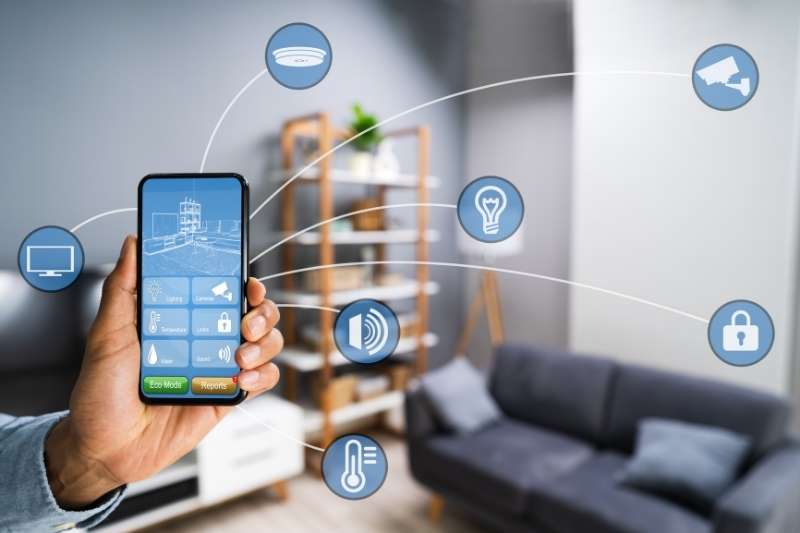Searching for apartments for rent no longer pivots only on location or aesthetics, the discerning tenant’s compass increasingly turns towards energy efficiency. The exigency of curbing monthly expenditures prompts an intersection with innovative technology.
Yet, the journey towards such an ideal is fraught with challenges, often resting heavily on the arsenal of landlord tools, that are crucial for the energy conservation implementation. It is a call to action for both landlords and tenants to embrace the tools and strategies that pave the way towards a more sustainable and economically prudent tomorrow.
Lighting Solutions through IoT
IoT-enabled lighting systems allow for precise control over illumination levels, enabling renters to modulate lighting based on actual necessity rather than fixed settings. Such systems can also be programmed to adapt to ambient light conditions, further conserving energy by dimming or switching off when natural light suffices.
Furthermore, with the data analytic capabilities of IoT platforms, renters can gain insights into their energy consumption patterns, allowing them to make informed decisions to tailor their lighting usage optimally. The systems can identify peak usage times and suggest adjustments to mitigate unnecessary energy expenditure, thereby aiding in the reduction of electricity bills.
The ease of installation and user-friendly interface of IoT-enabled lighting systems ensure that renters, irrespective of their technical prowess, can effortlessly adapt to this innovative solution.
Smart Water Heaters
Smart water heaters proffer unparalleled control over water heating, ensuring that hot water is produced only when necessary. The programmable features enable tenants to tailor the heating schedule in alignment with their daily routines, thereby obviating the need for continuous water heating. This judicious utilization of energy not only contributes to a reduction in utility bills but also aids in the conservation of natural resources.
Moreover, smart water heaters are equipped with sensors that monitor the water temperature and adjust the heating elements accordingly. This meticulous regulation of energy ensures optimal performance, further contributing to cost savings. Additionally, these innovative devices provide remote access through mobile applications, allowing renters to adjust settings and monitor energy usage in real-time, irrespective of their physical location.
Leak Detection Systems
Predominantly, leak detection systems operate through sensors that meticulously monitor the flow of water within the plumbing infrastructure. Upon identification of an irregularity or excessive water flow, these systems promptly alert residents, facilitating immediate intervention. This promptness is essential, as it mitigates the extent of damage, curtailing the need for extensive repairs, which, in the long run, proves to be economically beneficial for renters.
Smart refrigerators
At the heart of the smart refrigerator’s prowess lies its energy-efficient design. Equipped with advanced insulation materials and precise temperature control mechanisms, these appliances ensure optimal cooling while minimizing energy consumption. This results in a discernible reduction in electricity bills for renters, offering long-term financial relief.
Moreover, the integration of smart sensors and IoT connectivity enables renters to monitor and adjust the refrigerator’s settings remotely. This means that even while away from their apartments, tenants can ensure the appliance operates at peak efficiency.
Additionally, these sensors can alert users to potential issues, preventing food spoilage and unnecessary energy wastage. Incorporating smart features such as inventory management and expiration tracking, these refrigerators help renters minimize food wastage, further contributing to financial savings. The ability to receive real-time notifications on expiring items ensures that groceries are consumed before they go to waste.
Intelligent Washing Machines and Dryers
Intelligent washing machines and dryers operate with an uncanny efficiency, thanks to their integrated sensors and advanced algorithms. These machines exhibit a profound understanding of load sizes, optimizing water and energy consumption accordingly.
Furthermore, these appliances boast smart scheduling capabilities, enabling users to harness off-peak electricity rates. This strategic utilization of resources not only ensures a lower carbon footprint but also a lighter financial burden.
Incorporating intelligent washing machines and dryers into apartments for rent also means fewer maintenance hassles. Predictive maintenance algorithms monitor appliance health, preempting potential breakdowns and costly repairs.
Smart Thermostats
The main feature of smart thermostats is their ability to adapt to individual preferences and schedules. By learning your daily routines and occupancy patterns, smart thermostats can automatically adjust temperature settings, ensuring that your apartment remains comfortable when needed, but conserving energy when unoccupied. This adaptability translates into lower utility bills and a reduced carbon footprint.
Moreover, smart thermostats grant tenants the convenience of remote control via smartphone applications. This means that, whether you’re at work or away on vacation, you can fine-tune your apartment’s climate, preventing unnecessary heating or cooling expenses.
Furthermore, many smart thermostats offer detailed energy consumption data, allowing you to track your usage and identify areas for improvement.
Intelligent HVAC Systems
Intelligent HVAC systems employ an array of sensors, such as occupancy and temperature sensors, to optimize climate control within rental units. Intelligent HVAC systems, leveraging machine learning algorithms, analyze data from these sensors to make real-time adjustments. This results in precise temperature regulation, ensuring that heating and cooling are only active when needed.
Moreover, the capability to set custom schedules and remotely control HVAC units via smartphones empowers tenants to exercise unprecedented control over their energy consumption. The long-term benefits are remarkable, with reduced energy bills being a direct result.
Furthermore, predictive maintenance features detect potential issues early, preventing costly breakdowns and ensuring the HVAC system operates at peak efficiency.







